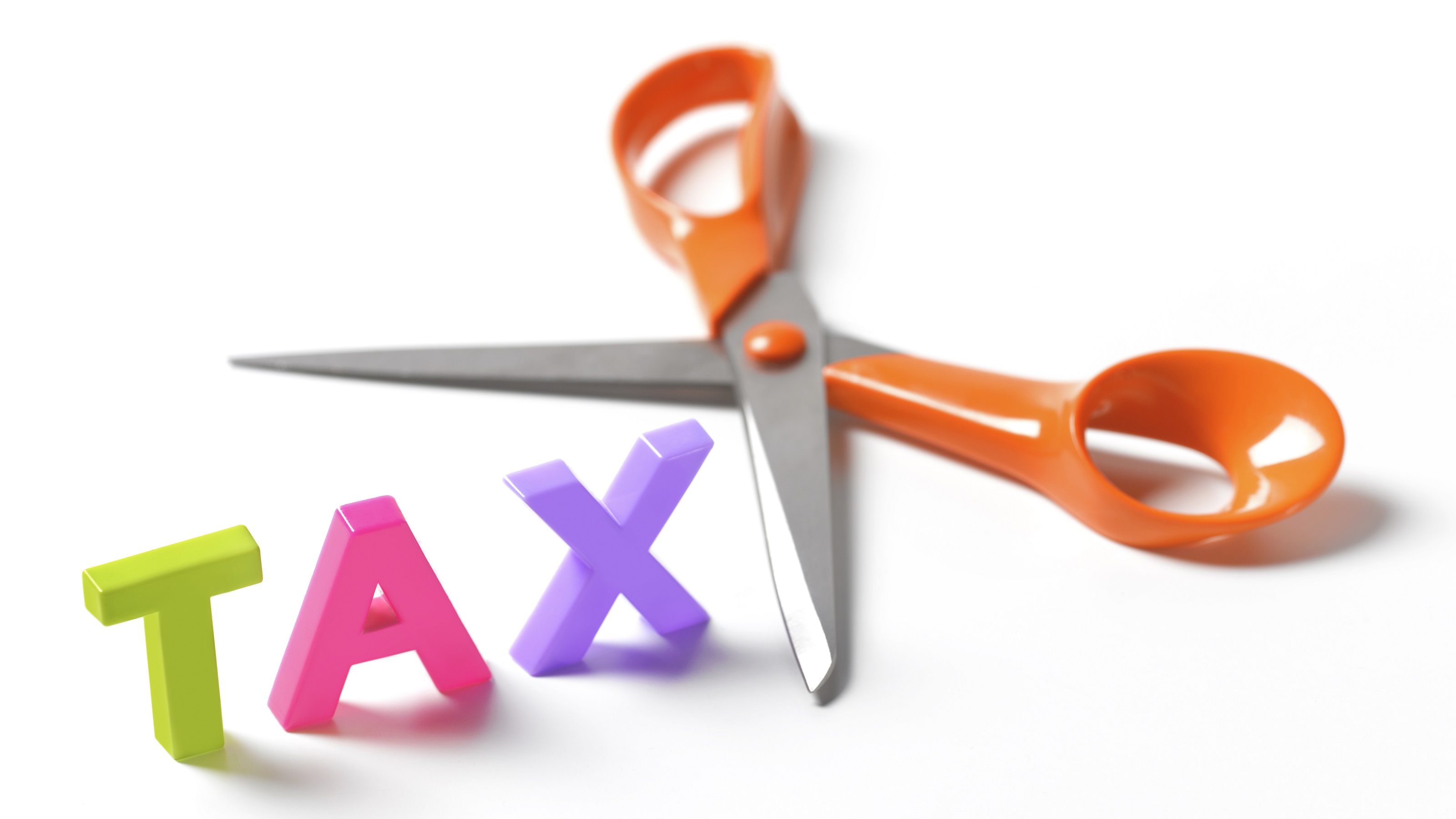This Trust Strategy Can Reduce Your Taxes Big-Time
Upstream basis planning can help younger wealthy people pay less taxes on highly appreciated assets if they appoint an aging relative as a trust beneficiary.


Profit and prosper with the best of Kiplinger's advice on investing, taxes, retirement, personal finance and much more. Delivered daily. Enter your email in the box and click Sign Me Up.
You are now subscribed
Your newsletter sign-up was successful
Want to add more newsletters?

Delivered daily
Kiplinger Today
Profit and prosper with the best of Kiplinger's advice on investing, taxes, retirement, personal finance and much more delivered daily. Smart money moves start here.

Sent five days a week
Kiplinger A Step Ahead
Get practical help to make better financial decisions in your everyday life, from spending to savings on top deals.

Delivered daily
Kiplinger Closing Bell
Get today's biggest financial and investing headlines delivered to your inbox every day the U.S. stock market is open.

Sent twice a week
Kiplinger Adviser Intel
Financial pros across the country share best practices and fresh tactics to preserve and grow your wealth.

Delivered weekly
Kiplinger Tax Tips
Trim your federal and state tax bills with practical tax-planning and tax-cutting strategies.

Sent twice a week
Kiplinger Retirement Tips
Your twice-a-week guide to planning and enjoying a financially secure and richly rewarding retirement

Sent bimonthly.
Kiplinger Adviser Angle
Insights for advisers, wealth managers and other financial professionals.

Sent twice a week
Kiplinger Investing Weekly
Your twice-a-week roundup of promising stocks, funds, companies and industries you should consider, ones you should avoid, and why.

Sent weekly for six weeks
Kiplinger Invest for Retirement
Your step-by-step six-part series on how to invest for retirement, from devising a successful strategy to exactly which investments to choose.
Editor’s note: This is part 12 of an ongoing series about using trusts and LLCs in estate planning, asset protection and tax planning. The effectiveness of these powerful tools — especially for asset protection and tax planning — depends very much on how they are configured to work together and whether certain types of control over assets and property are surrendered by the property owner. See below for links to the other articles in the series.
Upstream basis planning is a strategy that involves gifting assets to someone who’s going to pass away before you in order to reduce capital gains taxes. This technique is reliant on the rule that to get a step-up in basis, assets must be included in the gross estate of a person who dies.
Put differently, during the lifetime of a trust maker, whether the value of a trust’s assets goes up or down, a trust (neither a revocable trust nor an incomplete gift irrevocable trust) will not reduce or diminish the capital gains tax consequences when the trust maker sells the assets. If the trust assets have a lower basis than the fair market value, once the trust sells or disposes of the assets by certain transfers, either the trust or the trust maker will need to recognize the capital gain (with the gain basically calculated as the sale price minus the basis) and pay capital gains taxes on the gain. (If the value of the trust assets go down in value, the trust maker or your trust may want to recognize the capital loss.)
From just $107.88 $24.99 for Kiplinger Personal Finance
Become a smarter, better informed investor. Subscribe from just $107.88 $24.99, plus get up to 4 Special Issues

Sign up for Kiplinger’s Free Newsletters
Profit and prosper with the best of expert advice on investing, taxes, retirement, personal finance and more - straight to your e-mail.
Profit and prosper with the best of expert advice - straight to your e-mail.
However, if a younger person chooses an older relative, such as an aging parent, as a trust beneficiary, when that older person dies, the assets in the trust will receive the step-up in basis and potentially return to the ownership of the younger person at the higher value.
Here’s how it could work
Example. A parent’s adult offspring has land worth $5 million and a basis of $500,000. In 2020, the child makes a completed gift of the land to an asset protection trust with their aging parent as beneficiary, using $5 million of the child’s lifetime exemption from gift and estate taxes. The child ensures that the entire value of the land will be included in the parent’s gross estate by also giving the parent a testamentary general power of appointment, which permits the parent upon their death to leave the land to anyone whom the parent wishes, including the parent’s creditors. The parent dies in 2024 when the land has doubled in value to $10 million. Happily, the parent exercised the power of appointment in favor of the child, giving the land back to the gifting child. More fortunately, the parent has adequate estate tax exemption so that even though the land is included in the parent’s gross estate, the land is not subject to estate tax. The best result is that because the land was included in the parent’s gross estate, the child gets the land back with a step-up in basis to the time-of-death fair market value of $10 million.
How everything is set up is critical
Yes, you read that right — upstream gifts from the younger generation to the older generation create intergenerational basis step-up opportunities. However, the assets gifted from the younger to the older generations must be included in the gross estate of the older generation — potentially taxable.
Additionally, the assets must be directed via a power of appointment at the discretion of the older generation. Because of the potential for estate tax by the older generation, as well as the granted power to appoint trust assets to beneficiaries, this planning technique must be carefully considered.
My next article will be about using LLCs to protect against liabilities originating from LLC-owned assets.
Other Articles in This Series
- Part one: To Avoid Probate, Use Trusts for Estate Planning
- Part two: How Quitclaim Deeds Can Cause Estate Planning Catastrophes
- Part three: Revocable Trusts: The Most Common Trusts in Estate Planning
- Part four: With Irrevocable Trusts, It’s All About Who Has Control
- Part five: Ins and Outs of Domestic Asset Protection Trusts (DAPTs)
- Part six: Irrevocable Trusts: Less Control Equals More Asset Protection
- Part seven: Should You or the Trust Pay a Trust’s Income Taxes?
- Part eight: How to Handle Irrevocable Trust Assets Tax-Efficiently
- Part nine: Repeal the Death Tax? These Are the Taxing Trade-Offs
- Part 10: Gift and Estate Tax vs Capital Gains Tax: Which Is Less?
- Part 11: This Double-Dip Trust Benefit Really Is Too Good to Be True
Profit and prosper with the best of Kiplinger's advice on investing, taxes, retirement, personal finance and much more. Delivered daily. Enter your email in the box and click Sign Me Up.

Rustin Diehl advises clients on tax, business and estate planning matters. Rustin serves as an adjunct professor, frequent speaker and is current or former chair of professional associations. Rustin is a prolific author and has published many technical and popular articles on estate and business issues, as well as drafting and advising legislators in developing numerous statutes pertaining to trust and estate and business planning, creditor exemption planning and digital asset (blockchain) trusts and blockchain entities known as decentralized autonomous organizations.
-
 The New Reality for Entertainment
The New Reality for EntertainmentThe Kiplinger Letter The entertainment industry is shifting as movie and TV companies face fierce competition, fight for attention and cope with artificial intelligence.
-
 Stocks Sink With Alphabet, Bitcoin: Stock Market Today
Stocks Sink With Alphabet, Bitcoin: Stock Market TodayA dismal round of jobs data did little to lift sentiment on Thursday.
-
 Betting on Super Bowl 2026? New IRS Tax Changes Could Cost You
Betting on Super Bowl 2026? New IRS Tax Changes Could Cost YouTaxable Income When Super Bowl LX hype fades, some fans may be surprised to learn that sports betting tax rules have shifted.
-
 Stocks Sink With Alphabet, Bitcoin: Stock Market Today
Stocks Sink With Alphabet, Bitcoin: Stock Market TodayA dismal round of jobs data did little to lift sentiment on Thursday.
-
 Your Adult Kids Are Doing Fine. Is It Time To Spend Some of Their Inheritance?
Your Adult Kids Are Doing Fine. Is It Time To Spend Some of Their Inheritance?If your kids are successful, do they need an inheritance? Ask yourself these four questions before passing down another dollar.
-
 The 4 Estate Planning Documents Every High-Net-Worth Family Needs (Not Just a Will)
The 4 Estate Planning Documents Every High-Net-Worth Family Needs (Not Just a Will)The key to successful estate planning for HNW families isn't just drafting these four documents, but ensuring they're current and immediately accessible.
-
 Love and Legacy: What Couples Rarely Talk About (But Should)
Love and Legacy: What Couples Rarely Talk About (But Should)Couples who talk openly about finances, including estate planning, are more likely to head into retirement joyfully. How can you get the conversation going?
-
 How to Get the Fair Value for Your Shares When You Are in the Minority Vote on a Sale of Substantially All Corporate Assets
How to Get the Fair Value for Your Shares When You Are in the Minority Vote on a Sale of Substantially All Corporate AssetsWhen a sale of substantially all corporate assets is approved by majority vote, shareholders on the losing side of the vote should understand their rights.
-
 Dow Leads in Mixed Session on Amgen Earnings: Stock Market Today
Dow Leads in Mixed Session on Amgen Earnings: Stock Market TodayThe rest of Wall Street struggled as Advanced Micro Devices earnings caused a chip-stock sell-off.
-
 We're 62 With $1.4 Million. I Want to Sell Our Beach House to Retire Now, But My Wife Wants to Keep It and Work Until 70.
We're 62 With $1.4 Million. I Want to Sell Our Beach House to Retire Now, But My Wife Wants to Keep It and Work Until 70.I want to sell the $610K vacation home and retire now, but my wife envisions a beach retirement in 8 years. We asked financial advisers to weigh in.
-
 How to Add a Pet Trust to Your Estate Plan: Don't Leave Your Best Friend to Chance
How to Add a Pet Trust to Your Estate Plan: Don't Leave Your Best Friend to ChanceAdding a pet trust to your estate plan can ensure your pets are properly looked after when you're no longer able to care for them. This is how to go about it.